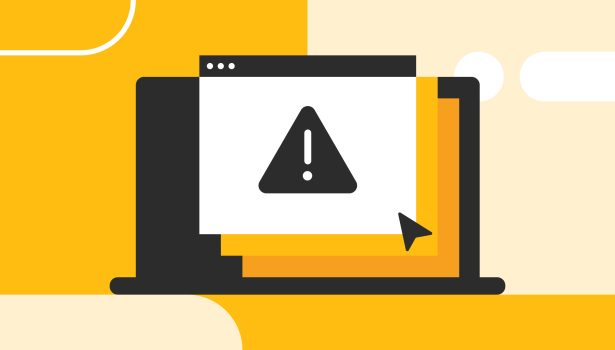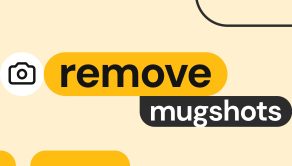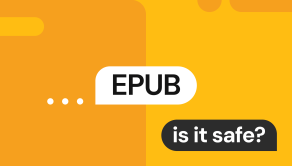Dark web websites: what they are and how to access them safely

Dark web websites are encrypted sites hosted on .onion domains that can only be accessed via specialized browsers such as Tor, protecting their users’ anonymity. The dark web is known for its borderline illegality, so it’s important to step carefully when browsing websites there. Some of them are legitimate, but accessing others may get you into trouble.
Let’s see what types of dark web sites are out there and how to access the dark web safely and legally.
What are dark web websites?
Dark web sites sit on .onion domains that operate on decentralized overlay networks and can be accessed using special software such as the Tor (The Onion Router) browser. They are not indexed by typical search engines like Google, so you can’t just casually stumble across them unless you specifically go on the dark web.
Dark web content is encrypted and all traffic sources are anonymized by design. Due to the layered architecture of the dark web, it’s impossible to identify its users or their locations as the traffic is randomly routed between multiple servers. This conveniently obscures users’ identities and thus opens up opportunities for both freedom of speech and crime.
Types of websites on the dark web
The share of dark web websites is tiny compared to the rest of the internet, but these websites are diverse and welcome all kinds of user groups, from curious individuals to cybercriminals.
Because of its focus on privacy and anonymity, the dark web attracts benevolent users looking for safe ways to access or share sensitive information. These are activists, whistleblowers, journalists, and dissidents under oppressive regimes. On the other side, there are dark web platforms endorsing illegal and even dangerous activities, such as black markets, hacking, or anarchist-focused forums.
Some of these illegal websites are spoofs, advertised with fake URLs, and are nothing more than phishing links. In addition, there’s a high chance you can be exposed to disturbing, offensive and illegal content. That’s why it’s critical that you access only trusted, legitimate domains and stay extra vigilant when browsing the dark web.
Legal dark web websites
The dark web is not only about murky business. It also supports many benign and appropriate activities: you can do research, exchange ideas, ask questions, network with like-minded users, and share your point of view without overstepping legal boundaries.
Some of the legitimate websites you find there have always been part of the open web. For example, you can find major websites such as The Guardian, Reddit, and Facebook both on the open and dark web.
Some of the legal dark web sites include:
- Web archives and wikis (The Hidden Wiki, Internet Archive, Archive.today)
- Whistleblowing platforms (SecureDrop, GlobaLeaks)
- Activism and nonprofit platforms (Amnesty International, Freedom of the Press Foundation)
- Encrypted messaging and email providers (Proton Mail, Guerrilla Mail, Keybase, Riseup, OpenPGP)
- Government resources (CIA)
- News outlets and investigative journalism portals (BBC, ProPublica, Radio Free Europe, The Guardian, The New York Times)
- Social media (Facebook)
- Community forums (Reddit)
- Search engines (DuckDuckGo, Torch, Ahmia)
The key purpose behind these websites is to support safety, anonymous communication, digital privacy protection, and education. But how do you know if it’s legal to access them? Ask yourself—would you do this if you weren’t anonymous? If the answer is still yes and you can verify the website’s trustworthiness, it can be safe to access it.
Illegal dark web websites
The dark web is both anonymous and unregulated, so it’s no wonder all sorts of illegal and shady activities are taking place there.
Examples of illegal websites you can find on the dark web are:
- Darknet marketplaces for goods and services (selling and buying drugs, counterfeit goods, weapons and explosives, stolen data, malware, hitmen-for-hire and so on)
- Cybercrime websites (listings of hacking services, selling of ransomware and phishing kits, keyloggers, trojans, etc.)
- Illegal content sharing and streaming platforms (child exploitation, pornography, violence)
Gray areas
Now, everything that can’t be reliably identified as either legal or illegal falls into the gray areas that are ethically questionable. Their legality depends on the context, but the safest way is to avoid using these websites altogether.
Examples of questionable websites found on the dark web include:
- Leak and whistleblowing sites: it depends on what kind of information is exposed, and whether it serves public good or infringes on someone’s privacy.
- Pirated content libraries and P2P file-sharing systems: it’s often considered illegal to access and share pirated material as it’s a copyright infringement in many countries.
- Political and activist forums: it can be illegal to access and contribute to these forums in case they’re banned in your location.
- Cryptocurrency services: Though cryptocurrency operations are legal in many countries, they may conceal illegal purchases like drugs and stolen data, or be used for tax evasion.
How to access dark web websites safely
You should follow safe browsing practices wherever you go, and the dark web is no exception. It’s a place where you can encounter malware and scammers at every corner, so you shouldn’t overlook security measures. It’s also advised to browse legal websites only to avoid the risk of overstepping the law.
Here’s how to access the dark web safely and legally:
Install and use the Tor browser
You should first download and install the Tor browser to access .onion websites. Only download from the official website to avoid infected links.
- Install Tor like any other browser. It should connect to the Tor network automatically.
- Disable JavaScript and scripts in the Tor settings to browse in the “safest” mode.
- Visit only trusted and verified .onion URLs. For example, some well-known platforms like The New York Times have their official .onion mirrors.
Note that dark web sites may load slowly because of the encryption routing and look very basic and stripped-down, which is normal.
Use a VPN for additional protection
Even though Tor anonymizes all connections and deidentifies its users, it still helps to use a Virtual Private Network (VPN) as an extra protection layer.
A VPN masks your IP address, encrypts your connection, and protects you from tracking by your Internet Service Provider (ISP).
Take note of these best practices when using VPN tools:
- Use a trusted VPN service that doesn’t log your browsing data.
- Don’t use free VPNs—it’s risky as they can log and even sell your data.
- Turn on a VPN before accessing the Tor network.
Essential safety practices when on the dark web
Consider taking extra precautions to make your dark web experience enjoyable without any repercussions.
- Use Tails OS (optional): This amnesic operating system runs from the USB and is designed for anonymity.
- Don’t click unknown or sketchy links.
- Never disclose your personal information and don’t use your real name, email address and credentials.
- Cover your web camera so that even if it’s hacked, no data is streamed from it.
- Don’t download any files, as they may contain phishing links, malware and trackers.
- Avoid purchasing, trading or ordering anything on the dark web.
- Don’t engage in suspicious communication.
- Don’t visit illegal websites out of curiosity as you can still pay dearly for it.
How to tell if a dark web website is trustworthy
- It’s mentioned positively on multiple trusted forums
- It’s been online consistently for a long time
- There’s no push or urgency to click the link (otherwise it’s a prime sign of a scam)
- You can verify the website’s public encryption key (PGP)
Should you explore the dark web?
It’s easy to see why the dark web is so attractive: it’s mysterious, reserved for the most daring internet users, and has this flair of danger and forbiddenness. This is precisely the reason why it’s so easy to cross the fine line once there. One misstep, and you can end up in the dark corners full of illicit trade and disturbing content, or fall victim to a scam.
Your exploration of the dark web should always be well-informed, legal and cautious. After all, the dark web serves many useful purposes and is not entirely unlawful. However, it still requires foresight and responsible behavior.
Curiosity vs. risk
Before accessing the dark web, consider your intent. You might be drawn to it because you want to take a break from the surveillance and ISP tracking so common to the surface web. Or you’re investigating censored topics and looking for a free speech outlet. Or you’re just tech-curious about encryption, overlay networks, and web anonymity.
Exploring out of curiosity is fine, but it won’t save you from the potential harm if you end up on the wrong dark web website. In all cases, match your curiosity with caution, evaluate the risks, and respect the law. The dark web is not a place for casual browsing and it only favors well-prepared users.
Legal considerations and real dangers
To start with, visiting the dark web can be illegal in your location. You should always check your local internet policies before going on the dark web.
Once this question is cleared, it still matters what you access. The dark web is not structured like the open web and is rather unpredictable. Malicious dark web sites can exist just a few clicks away from legal resources. Sites can be cloned, change addresses overnight and be used as phishing traps.
The dark web is also monitored by law enforcement agencies and enterprise cybersecurity teams. Even if you don’t engage in illegal activities, visiting such websites (intentionally or unintentionally) can draw unwanted attention to you.
What to avoid at all costs
There are dark web non-negotiables when it comes to the content you must stay away from at all times. Even if you stumble across it by accident, ignorance can’t protect you from legal implications or exposure to malware and scams.
These non-negotiable areas include:
- Illegal darknet marketplaces
- Child sexual abuse materials (CSAM)
- Selling and buying of weapons, drugs, stolen data
- Criminal and fraud services, including fake IDs, bank fraud, hacking as a service, etc.
Some malicious websites are disguised as legitimate. Beware of deceptive links and avoid cloned websites—only access those resources that you know to be legit.
Protecting your identity online
The dark web poses risks to your personal data while you’re browsing it—and beyond. A large portion of stolen data ends up for sale on the dark web, and this is what triggers dark web alerts for those who enable them (we highly recommend you do this too).
How personal data ends up on the dark web
Even if you’ve never been on the dark web, your personal details might already be there. This can happen for a number of reasons:
- Data breaches: Cybercriminals hack databases all the time, and then post this stolen data on the dark web’s forums and marketplaces for sale.
- Selling through data brokers: Data brokers obtain your publicly available data and then sell it. Once your information is exposed, it can also be hacked, as no information is 100% safe on the internet.
- Oversharing online: If you share enough of your personal information on social media and other public websites, cybercriminals can piece it together for identity theft exploits.
Why reducing your online footprint matters
We’re all too willing to share information about ourselves online. We share photos on Instagram, job-related updates on LinkedIn, phone numbers in exchange for online store discounts. Over time, this information piles up and seeps into people-search sites and data broker platforms, without our knowledge.
Every detail we share builds up our digital footprint and expands the attack surface for cybercriminals. They can piece this information together and use it to commit identity theft and other types of fraud.
Minimizing the amount of data available about you online means reducing this attack surface, and this is where services like Onerep come in.
How Onerep helps keep you off the dark web
Onerep finds and removes your personal data from 212 people-search and data broker websites so it can’t be exposed and misused. This is an essential step to protect your privacy and reduce the risk of your data being hacked and sold on the dark web.
Onerep removes your data from public view, also cutting its supply to search engines and artificial intelligence tools so it can’t be indexed and searched for. We do the heavy lifting for you, so you don’t have to deal with time-consuming and unnerving opt-out and data removal requests yourself.
Start your free trial and enjoy peace of mind knowing you’re in control of your personal data.
FAQs
Is it legal to access the dark web?
Accessing the dark web and using the Tor browser is legal in most countries, including the US, Canada and much of Europe. However, the legality depends on what you do on the dark web, as engaging in illegal activities is prohibited.
What kind of websites exist on the dark web?
Dark web websites can be legal (news portals, wikis, search engines, academic archives, etc.) as well as illegal and gray-area (black markets, hacking forums, pirated content libraries, phishing sites, etc.). It’s your responsibility to browse only legal websites and stay away from illicit activities.
How can I explore the dark web safely?
Safe browsing practices include using the official Tor browser with a trusted, no-log VPN service, visiting only trustworthy legal websites, never sharing personal information and never downloading any files as they might contain malware.
Can my personal info appear on the dark web without me knowing?
Yes, it can. Your personal data can end up on the dark web as a result of a data breach, public exposure via a data broker site, or due to your voluntary oversharing on social networks. Enable dark web alerts to know if your personal data is traded on the dark web.





Dimitri is a tech entrepreneur and founder of Onerep, the first fully automated data removal service. Top cybersecurity CEO of 2021 by The Software Report.